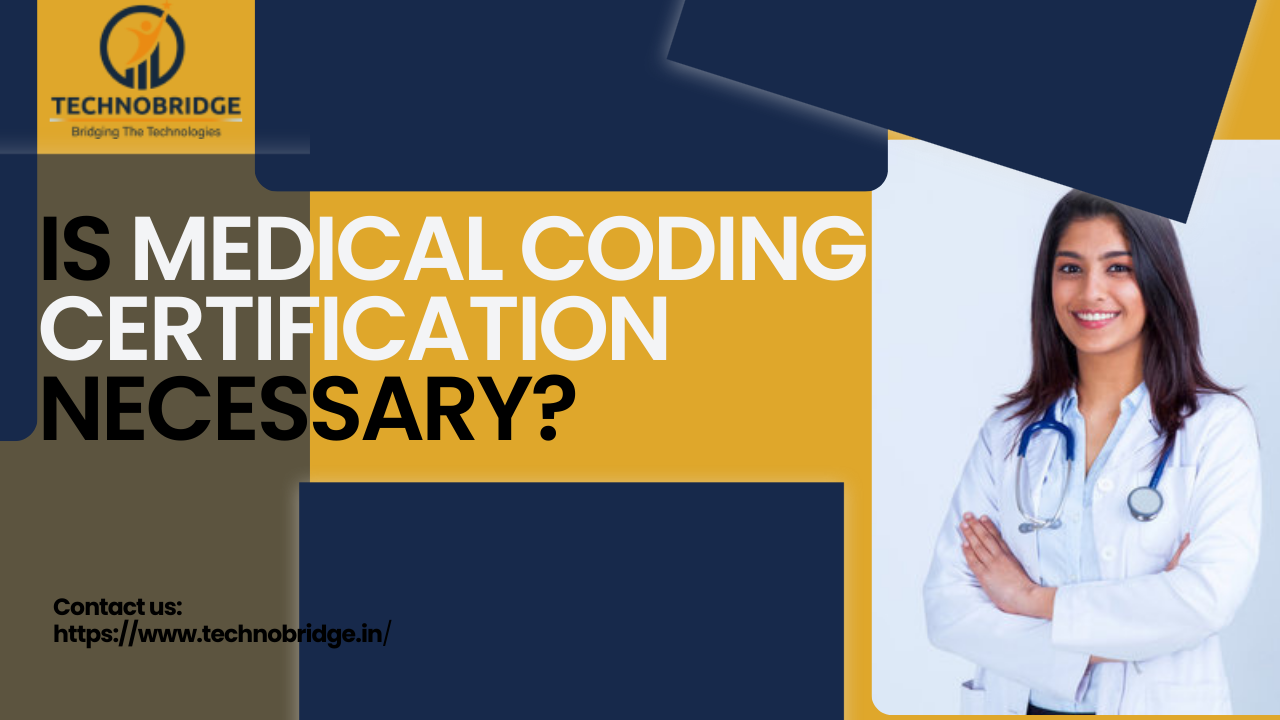The healthcare field offers a diverse range of exciting career paths. If you're detail-oriented and have a knack for organization, then medical coding might be the perfect fit for you. But what sets qualified candidates apart in this growing field? Earning a medical coding certification can be your key to unlocking a successful healthcare career.
Why is Medical Coding Certification Important?
Think of medical coders as the translators of the healthcare world. They meticulously convert medical procedures and diagnoses into universal alphanumeric codes. These codes are vital for accurate billing, ensuring healthcare providers receive proper reimbursement for their services. While some entry-level medical coding positions might not explicitly require certification, it offers a multitude of advantages for aspiring coders:
• Improved work Prospects:
In today's competitive healthcare landscape, a medical coding certification acts as a powerful key unlocking a world of improved work prospects. It demonstrates your dedication to the field, verifies your proficiency in medical terminology and coding systems, and positions you as a valuable asset to potential employers..
• Greater Earning Potential:
Research indicates that certified medical coders often make more money than their non-certified colleagues. According to the American Academy of Professional Coders (AAPC), certified coders can make up to 20% of their income.
Validation of Expertise:
A certification demonstrates to potential employers that you possess the necessary knowledge and skills to excel in medical coding. It signifies your ability to translate medical records with precision, adhering to industry standards.
Enhanced Job Prospects: In today's competitive job market, certification can make your resume stand out. Many healthcare facilities actively seek certified medical coders, as certification verifies your qualifications and reduces their training burden.
Earning Potential: Studies have shown that certified medical coders typically enjoy higher salaries compared to their non-certified counterparts. Certification can be a valuable investment in your future earning potential.
Types of Medical Coding Certifications
The two main organizations offering nationally recognized medical coding certifications are:
• The American Academy of Professional Coders (AAPC):
AAPC offers a variety of medical coding education specifically designed for the medical coding industry. The basic course for outpatient coding is the Certified Professional Coder (CPC), while the Certified Inpatient Coder (CIC) focuses more on hospital settings.
The AHIMA (American Health Information Management Association):
The AHIMA offers credentials that cover a wider range of health information management; certain qualifications also coincide with medical coding. A thorough certification that addresses both inpatient and outpatient coding is the Certified Coding Specialist (CCS).
Choosing the Right Certification
The ideal certification for you depends on your career goals and area of interest. Here are some factors to consider:
Entry level vs. advanced: Are you new to medical coding or do you have some experience? There are certifications available for both beginners and experienced coders.
Inpatient vs. outpatient: Do you want to focus on coding for hospitals or physician offices? There are specific certifications for each setting.
Learning Style: Both organizations provide self-paced study materials, instructor-led courses, and online learning in pharmacovigilance and medical coding. Select a format that suits your learning style and schedule.
Specific specialty: Are you interested in a particular area of medicine, such as cardiology or pediatrics? There are certifications available for some specialties.
Employer requirements: Some employers may require specific certifications for their open positions.
The Path to Becoming a Certified Medical Coder
Here's a general roadmap for obtaining a medical coding certification:
1. Education: There are two main paths to a medical coding career: formal education and on-the-job training. You can enroll in certificate programs offered by community colleges, vocational schools, or online platforms. These programs typically take less than a year and prepare you for certification exams. Alternatively, some employers may train you on the job, but a certificate can still give you a competitive edge and open up more opportunities.
2. Certification Exam: Once you feel prepared, register for the chosen certification exam. Both AAPC and AHIMA offer detailed information regarding eligibility requirements, exam content, and registration processes on their respective websites [Source: AAPC], [Source: AHIMA].
3. Continuing Education: Meeting regulatory requirements typically involves completing continuing education (CE) credits every few years. This helps ensure you remain current with the latest coding guidelines and industry changes.
Conclusion
Medical coding certification is a valuable investment for anyone seeking a fulfilling career in the healthcare field. It equips you with the necessary skills and knowledge to excel in this dynamic profession, opening doors to promising job opportunities and career advancement. By considering your interests and goals, you can choose the right certification path and unlock a rewarding future in medical coding.


